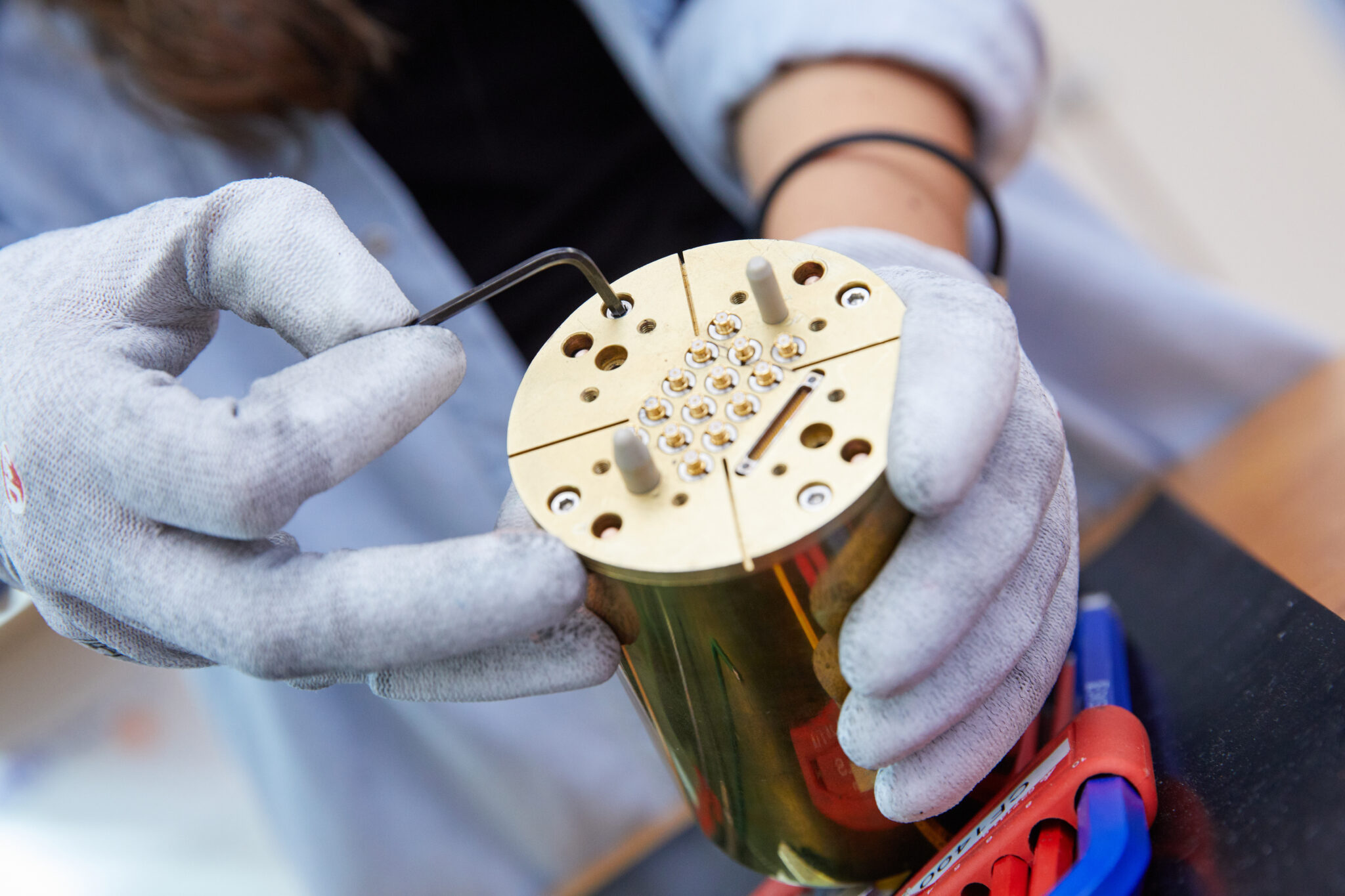Insider Brief
- A team of researchers from QuTech said improvements to the Andreev spin qubit is a step toward universal quantum computers.
- The new qubit is more reliable and stable.
- An Andreev spin qubit exploits the spin states of Cooper pairs to encode and process quantum information.
PRESS RELEASE — Researchers from QuTech improved the so-called ‘Andreev spin qubit’ in a critical way and believe it can become a prime candidate in the pursuit of a perfect qubit. The new type of qubit is created in a more reliable and intrinsically stable way, compared to previous versions, by combining the advantages of two other types of qubits. They publish their work in Nature Physics.
Unlike the world of conventional computers, wherein bits are based on very well established and reliable technologies, the perfect qubit has not been invented yet. Will the quantum computer of the future contain qubits that are based on superconducting transmon qubits, spin qubits in silicon, NV centres in diamond, or perhaps some other quantum phenomenon? Each type of qubit has their own advantages—and disadvantages. One is more stable, the second has a higher fidelity, and others are more easily mass-produced. The perfect qubit does not exist. Yet.
Best of both worlds

In this work, the researchers from QuTech—a collaboration between the Delft University of Technology and TNO—and together with international collaborators made a smart combination of existing techniques to store quantum information.
Marta Pita-Vidal, co-first author explains: “Two of the most promising types are spin qubits in semiconductors and transmon qubits in superconducting circuits. However, each type has its own challenges.”
”For example,” Pita-Vidal continues, “spin qubits are small and compatible with current industrial technology, but they struggle with interacting over long distances. On the other hand, transmon qubits can be controlled and read out efficiently over long distances, but they have a built-in speed limit for operations and are relatively large. The researchers in this study aim to harness the advantages of both types of qubits by developing a hybrid architecture that combines them.”
Andreev spin qubits
“In our experiment, we managed to directly manipulate the spin of the qubit using a microwave signal,” says Arno Bargerbos, the other co-first author. “We achieved very high ‘Rabi frequencies’, which is a measure of how fast they can control the qubit. Next, they embedded this ‘Andreev spin qubit’ within a superconducting transmon qubit which enables fast measurement of the qubit state.”
The researchers characterized the coherence time of the Andreev spin qubit, a measure of how long the qubit can stay alive. They observed that its ‘longevity’ is affected by the magnetic field from the surrounding materials.
“Finally,” remarks Bargerbos, “we demonstrated the first direct strong coupling between a spin qubit and a superconducting qubit, meaning that they could get the two qubits to interact in a controlled way. This suggests that the Andreev spin qubit can become a key element to interconnect quantum processors based on radically different qubit technologies: semiconducting spin qubits and superconducting qubits.”
Future work
Principal investigator Christian Andersen: “The current Andreev spin qubit is not perfect yet. It still needs to demonstrate multi-qubit operations, which is needed for universal quantum computers. The coherence time is also sub-optimal. That can be improved by using another material. Fortunately, the scalability of the qubits is on par with semiconductor qubits, raising the hope that we can get to the point where making the quantum algorithms becomes the limiting factor and not the quantum hardware.”
The paper is available here: Direct manipulation of a superconducting spin qubit strongly coupled to a transmon qubit,
For more market insights, check out our latest quantum computing news here.
















